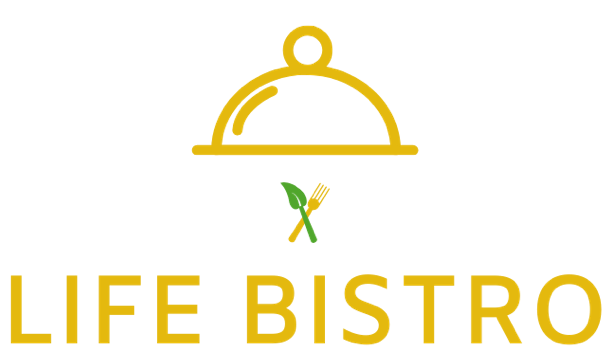Vegetarians and vegans alike reap numerous nutritional benefits, and helping treat PCOS could be one of them. The hormonal disorder results in several painful symptoms such as pelvic pain and anxiety. As such, researchers have gone in-depth into finding ways to alleviate these manifestations of PCOS— not only through medication, but also through one’s diet. What does being a vegetarian have to do with all of this? If you’re still thinking about stepping into the plant-based scene you might be asking: should you take the leap? This read will take you through all your questions about what a vegetarian diet means for women with PCOS.

[Also read Reasons to Try Alkaline Salads & Recipes to Start You Off]
What is PCOS?
PCOS stands for Polycystic ovary syndrome. Its name alludes to the several tiny cysts that form in the ovaries. The condition describes an abnormal amount of the male sex hormones called androgens that are found in women. PCOS is more common in a woman’s child-bearing years. PCOS symptoms can include irregular periods, pelvic pain, infertility, weight gain, excess stomach fat, acne, hair loss, anxiety, hirsutism, and depression. While genetic, environmental factors and other prenatal factors can come into play with the development of PCOS, diet and lifestyle can also contribute to it.
What Does Your Diet Have to Do With PCOS?
These are diet tips outlined by Michelle McMacken, MD, and executive director of Nutrition and Lifestyle Medicine at NYC Health + Hospitals/Bellevue in her article “I Have PCOS. What Should I Eat?”.
- Choose Low-Glycemic Food
Ms. Jyoti Bhatt, a senior dietician from Jaslok Hospital & Research Centre, discusses that there is a possible link between insulin resistance and PCOS. The connection was made that insulin resistance lowers insulin sensitivity, which hinders your pancreas from detecting whether you have taken in too much sugar or not. This causes blood sugar spikes, in which the high insulin levels could cause the ovaries to produce the influx of the male hormone. These are what causes the creation of cysts in the ovaries. Cutting down on sweetened beverages and extra sugar through opting for food that scores low on the glycemic index, like green and leafy vegetables, can be a way to lessen this.
- Eat High Fiber Food
Two of the symptoms of PCOS are weight gain and excess stomach fat. Eating high-fiber food was revealed to promote weight loss especially for women with PCOS.
- Reduce Trans Fats and Saturated Fats
What else isn’t recommended for women with PCOS? A study by Estadella, et al. in 2013 found that trans fat and saturated fats should be avoided. These also lead to insulin resistance and can worsen PCOS. What foods have these fats? Dairy, meat, and a wide variety of snack food. These aren’t the kind of foods many vegetarians or vegans usually eat, making it easier for them to eliminate these foods from their diets.
- Go for Soy
Soy is another kind of food that was shown to help with PCOS. In a randomized trial by Karamali, et al. in 2018, soy diets were tested alongside high-animal-protein diets of women with PCOS. The soy diet was found to help decrease several symptoms of PCOS such as weight gain, stomach fat, and high blood sugar. Another similar study had results that confirmed this.
- Reduce Foods with Animal Protein
This is yet another food that causes insulin resistance, a problem for people with PCOS.
What does this all mean for vegetarians and vegans everywhere? Many of the items in the list above can be shortened into one simple sentence: eat more plant-based food. Not all plant-based foods fit into each category, but it can be said that foods containing animal protein, trans fat and saturated fat are commonly found in the carnivorous or omnivorous lifestyle. As such, going all-green might be a good way to combat PCOS.

[Also read Is Brown Rice Vegan? Facts for Your Plant-Based Diet]
What Does Science Say About It?
A study about how to manage PCOS from the University of South Carolina suggests that a plant-based diet could be effective in weight loss efforts as well as battling insulin resistance— all factors that surround the condition.
PCOS-friendly Food to Include in Your Vegan or Vegetarian Diet
If you’re new to the plant-based lifestyle and want to try it out or if you’re a longtime vegetarian or vegan, these are some foods you can stock up on in your fight against PCOS.
- Seeds and nuts. Seeds and nuts can be used in salads or munched on as a snack food. They usually have high levels of fiber and promote weight loss— some recommendations to help treat PCOS.
- Lentils and Beans. Protein is essential in any diet and especially in a plant-based diet. The less meat, the better for those with PCOS so these alternatives might be your protein source of choice. Both contain an average of 15 grams of protein per cup and almost 50% of the necessary amount of fiber per day. It is something to note that beans also have 40 grams of carbohydrates for each cup.
- Protein Powder. If you’re not too big on beans, protein powder can supplement your meal planning for a good amount of protein without the sweeteners and other fillers added.
Vegetarians that lean more on the ovo vegetarian side, meaning you (or your doctor) allow yourself to eat eggs, can also have a serving of eggs in moderation. They are a good source of protein.
Other Lifestyle Changes You Can Pair with Your Vegetarian Diet for PCOS
Evidence-based interventions, like the following, can go along with a plant-based diet in order for women with PCOS to live a healthier life.
Regular Exercise
Aerobic exercises can reduce inflammation caused by PCOS, while any physical activity can help with insulin sensitivity. Resistance training has also been revealed to bring balance to the sex hormones in women with PCOS. Additionally, those with anxiety and depression can also benefit from exercise as it can improve one’s mood.
Good Quality Sleep
Not sleeping properly has also been found to increase systemic inflammation and affect insulin resistance. Getting a good night’s sleep can also help with your diet because it can lessen your craving for sugary foods.
Final Thoughts
While PCOS can be a tough condition at times, women with PCOS are encouraged to live healthy lifestyles which a plant-based diet can surely help with. Along with other factors, such as sleep and physical activity, food is one of the main components that affect one’s health. As such, veggies and fruits can be a big part of your meals.


